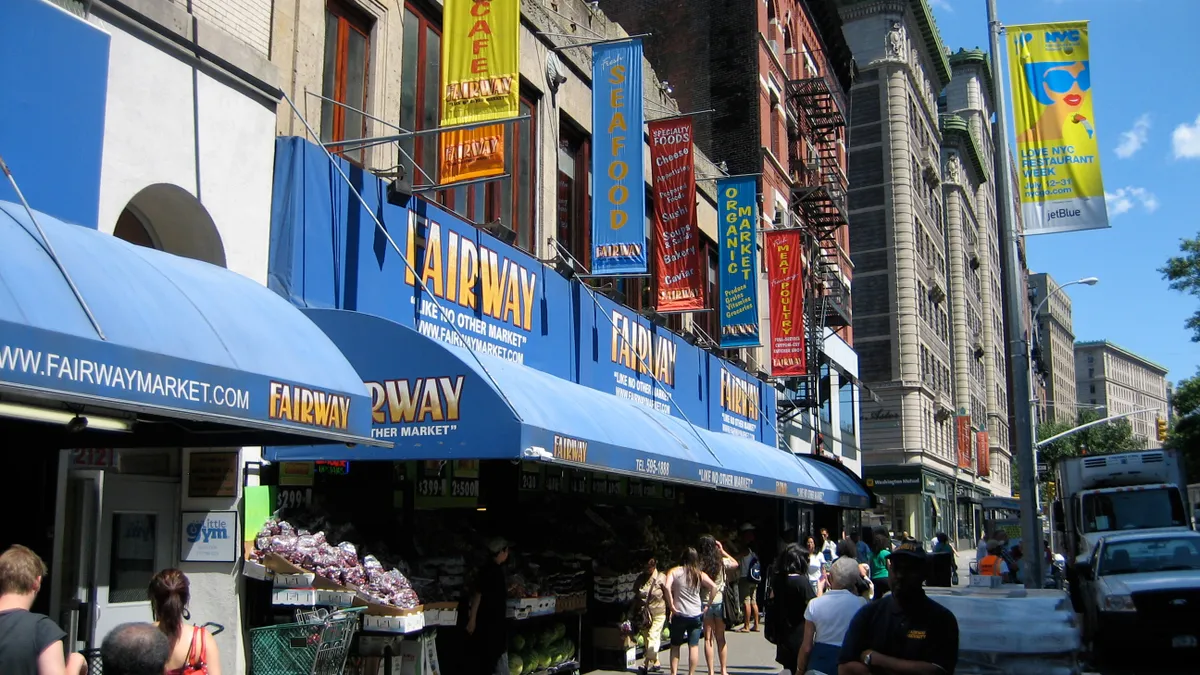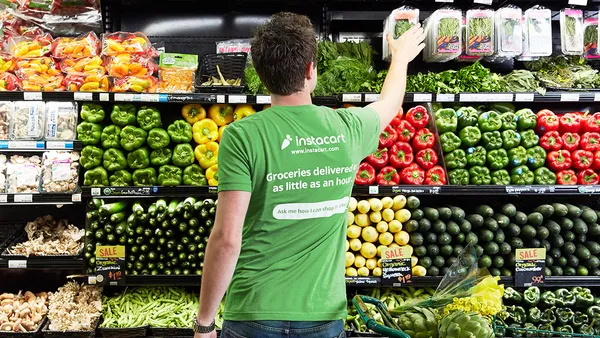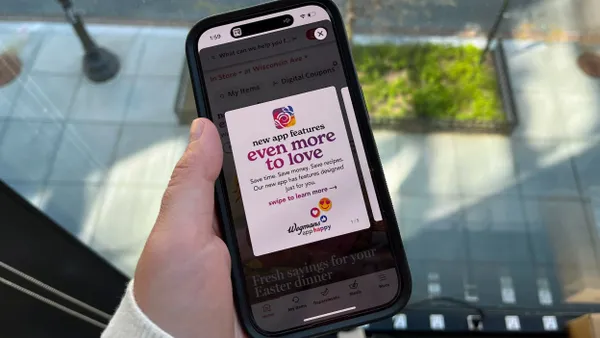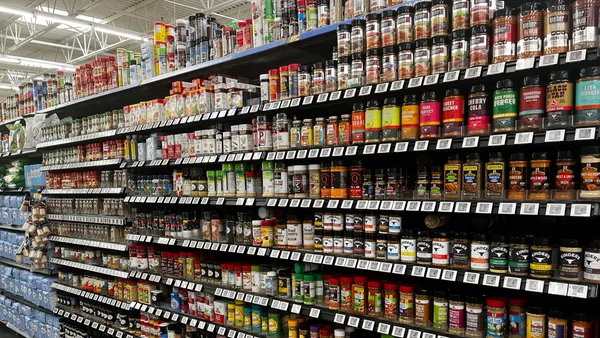Dive Brief:
- Fairway Market has seen a major uptick in the use of its mobile checkout app as consumers try to practice social distancing and avoid standing in lines, according to the retailer and FutureProof Retail, which powers the checkout app.
- Mike Penner, Fairway's director of retail applications and technology, said use of the app has grown as New York state and New York City have each declared a state of emergency, and as schools, bars and restaurants have closed down. Last Thursday, March 12, the company signed up 1,000 new users for its scan-and-go app, and continued to sign up increasing numbers throughout the week.
- At Fairway's Manhattan stores, at least 20% of transactions are coming through the skip-checkout app, Penner said. One location is doing around 30% of its total purchases through the app. Fairway's city locations typically see around 10% of transactions via the app.
Dive Insight:
In an interview with Grocery Dive, Penner said Fairway took several steps to promote its skip-checkout app and prepare for an influx of users. With news reports about the coronavirus outbreak growing increasingly dire, the grocer last week added additional servers to process orders through the app. It also provided a "CliffsNotes" training session for all store employees to reinforce how the app works and how to answer customer questions.
Fairway typically staffs one "ambassador" at each of its stores tasked with promoting the skip-checkout app and helping shoppers use it. Last week, the grocer started shifting cashiers, baggers and customer service reps over to provide additional customer support, with each store's ambassador leading their training sessions.
Fairway has been promoting its scan-and-go tool over social media and has posted signs at the entrance to each of its stores. To use the app, shoppers must first download it, then provide their email address and begin scanning product bar codes. The app tallies each selection, and at the end of the trip shoppers scan a QR code that lets the system know they're ready to pay. To deter theft, roughly one out of every 20 transactions is audited by a store employee.
Normally, a customer service rep is summoned from the sales floor. Now, Fairway has an employee stationed at the checkout point to perform audits on customers the system flags.
Fairway launched its skip-checkout app across all stores last year in partnership with FutureProof Retail. Penner said it has seen steady customer adoption, with around 10% of transactions at its New York City stores coming through the tool and around 5% of transactions at its suburban locations.
Over the past week, the app has become a way for the grocer to tame lines and help customers practice social distancing amid the coronavirus outbreak, Penner said.
“I was in stores Friday, and I signed up 120 people myself," he said.
Numerous retailers have rolled out skip-checkout technology to their stores in recent years to address shopper frustrations with long lines. But adoption to this point hasn't taken off as shoppers complain programs can be burdensome and inefficient for large-basket shopping. The programs are also a theft risk, according to one expert who has studied front-end systems extensively.
Could coronavirus fears boost adoption, win over shoppers and help other retailers improve the flow of customers through their stores? No other retailers have reported data showing an uptick in mobile checkout, but companies like Walmart are emphasizing the solution as a useful tool for shoppers. Consumer Reports has advised customers who go in stores to use a contactless system like Apple Pay.
Scan-and-go options could also prove enticing as shoppers face delayed grocery deliveries and limited order pickup windows amid a flood of orders. Amazon's grocery delivery system was overloaded on Sunday, while Peapod has experienced site outages. In New York City, FreshDirect's delivery time slots have booked up, and so have Fairway's, Penner said.
The success of Fairway's skip-checkout program comes at an uncertain time for the retailer. It filed for bankruptcy in January, and stores go up for sale via virtual auction Tuesday, with escalating bids coming for the chain's popular New York City locations.














